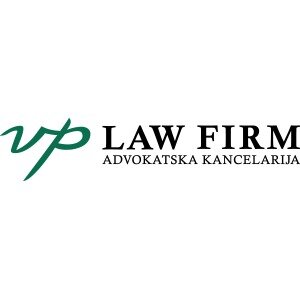Best Faith-Based Law Lawyers in Belgrade
Share your needs with us, get contacted by law firms.
Free. Takes 2 min.
List of the best lawyers in Belgrade, Serbia
About Faith-Based Law in Belgrade, Serbia
Faith-Based Law in Belgrade, Serbia, operates at the intersection of religious principles and legal regulations. This field primarily deals with issues where religious beliefs and legal obligations may overlap or conflict. Serbia, being a multi-religious society, acknowledges various faiths and their significance, hence, legal questions regarding religious practices, family law, and community matters are approached with sensitivity to these religious contexts. Faith-Based Law aims to ensure that legal practices and policies respect religious freedoms while maintaining public order and individual rights.
Why You May Need a Lawyer
There are several scenarios where individuals may seek legal assistance in Faith-Based Law in Belgrade, Serbia:
- Marriage and Divorce: Situations where civil law intersects with religious marriage ceremonies or divorce proceedings.
- Religious Discrimination: Cases where individuals or groups face discrimination based on their religious beliefs in employment, education, or other areas.
- Inheritance and Estate Planning: Ensuring that wills and estates are managed in accordance with both legal and religious guidelines.
- Religious Organizations: Matters related to the registration, operation, and governance of religious institutions.
- Religious Education: Legal issues surrounding the establishment and operation of religious schools or inclusion of religious education in the curriculum.
Local Laws Overview
Key aspects of local laws relevant to Faith-Based Law in Belgrade include:
- Constitutional Rights: The Serbian Constitution guarantees freedom of religion and mandates the separation of church and state while allowing religious communities to govern their internal affairs.
- Personal Status Law: This includes matters of marriage, divorce, and inheritance, often influenced by religious norms alongside secular laws.
- Anti-Discrimination Laws: Laws designed to protect individuals from discrimination, including on the basis of religion, in various spheres such as employment and education.
- Legal Status of Religious Communities: Regulations regarding the recognition and registration of religious entities and their legal rights and responsibilities.
Frequently Asked Questions
What is Faith-Based Law?
Faith-Based Law refers to legal areas where religious principles intersect with civil laws, impacting areas such as family law, education, and the operation of religious institutions.
How does the Serbian legal system accommodate religious practices?
The Serbian legal system recognizes religious freedoms and often allows religious laws to operate alongside civil laws in specific personal matters like marriage and inheritance.
Can religious marriages be legally recognized in Serbia?
Yes, religious marriages can be recognized, but they must also be registered with civil authorities to have full legal standing.
What legal issues might religious organizations face in Serbia?
Issues may include registration with the government, property rights, tax obligations, and governance as per both civil and religious guidelines.
How does one address religious discrimination legally in Belgrade?
An individual can file a complaint with relevant government bodies or seek legal proceedings against discrimination under Serbia's anti-discrimination laws.
Are there specific laws regarding religious education in Serbia?
Yes, there are regulations regarding the establishment of religious schools and the inclusion of religious content in public education, balancing secular and religious rights.
How can inheritance be guided by Faith-Based Law in Serbia?
While civil law governs inheritance, individuals can draft wills that comply with their religious principles, which can be respected if they do not conflict with public policy.
What should couples consider about divorce under Faith-Based Law?
Couples may need to consider both legal and religious procedures for divorce, ensuring compliance with civil law and consultations with religious authorities.
How do religious organizations register with the government?
They must comply with specific procedures for legal recognition, including the submission of documents outlining their operations and governance consistent with Serbian law.
Can an individual take legal action based on religious principles in Serbia?
Yes, individuals can seek legal recourse where religious principles are affected, provided such actions align with civil laws and do not violate public policies.
Additional Resources
Those seeking assistance or information can consider the following resources:
- Ministry of Justice of Serbia: Provides information regarding laws and regulations, including those pertaining to religious freedoms.
- Commission for Protection of Equality: An independent body that addresses cases of discrimination, including religious discrimination.
- Local Religious Councils: Many religious communities have councils or committees that offer guidance on religious and legal issues.
- Legal Aid Services: Organizations that offer free or subsidized legal assistance for those who cannot afford private legal services.
Next Steps
If you require legal assistance in Faith-Based Law, consider the following steps:
- Contact a legal professional experienced in Faith-Based Law to discuss your situation and explore your options.
- Gather all relevant documents and information that may pertain to your case, including any religious certificates, legal documents, and correspondence.
- Reach out to local religious councils or organizations for guidance and support, especially if your issue involves religious practices or beliefs.
- Consult with governmental bodies such as the Ministry of Justice or the Commission for Protection of Equality if your case involves complex legal or discrimination issues.
Lawzana helps you find the best lawyers and law firms in Belgrade through a curated and pre-screened list of qualified legal professionals. Our platform offers rankings and detailed profiles of attorneys and law firms, allowing you to compare based on practice areas, including Faith-Based Law, experience, and client feedback.
Each profile includes a description of the firm's areas of practice, client reviews, team members and partners, year of establishment, spoken languages, office locations, contact information, social media presence, and any published articles or resources. Most firms on our platform speak English and are experienced in both local and international legal matters.
Get a quote from top-rated law firms in Belgrade, Serbia — quickly, securely, and without unnecessary hassle.
Disclaimer:
The information provided on this page is for general informational purposes only and does not constitute legal advice. While we strive to ensure the accuracy and relevance of the content, legal information may change over time, and interpretations of the law can vary. You should always consult with a qualified legal professional for advice specific to your situation.
We disclaim all liability for actions taken or not taken based on the content of this page. If you believe any information is incorrect or outdated, please contact us, and we will review and update it where appropriate.










